Over the course of several summer months, Erickson Advisors held a three-part series of workshops to explore planning for tomorrow, today. These days our perception of age and aging is changing more than ever – from Millennial to Boomer – we feel younger the older we get. But, even as lifestyle markers shift, the considerations for aging such as healthcare, retirement planning, and even death, remain the same when it comes to generational transitions.
So, what’s your plan? We have compiled a summary of each workshop to help you along the way to making living long be living well.
For our first workshop, we welcomed Gary Knutson, Field Operations Manager for the North Carolina Department of Insurance Seniors’ Health Insurance Information Program (SHIIP). Visit the SHIIP website for more information or call 855-408-1212.
Here are our top takeaways from the evening:
- To earn Medicare you have to have worked at least 10 years or 40 quarters OR be married to someone for at least 10 years with qualifying work history. Make your choice! You can choose Part A &B (Hospital and Medical Insurance), Part D (Prescription Drug Plan) and potentially Medicare Supplement Insurance (Medigap) OR Part C (Medicare Advantage Plan). Think about your exposure and utilize the SHIIP office to inform yourself about the best plan for you.
- From the time you get Parts A & B, you have 6 months to get Medigap without a price change. It is guaranteed issued and renewable as long as you pay your premium on time. Medigap is good anywhere in the U.S. and is standardized across providers. A plan F is ALWAYS a Plan F, no matter the company. Access the Medicare Supplement Premium Comparison Database to compare supplemental plans. Medigap Supplemental Plans can be the most confusing piece of Medicare but you can always find assistance on navigating Medicare by calling SHIIP and speaking to a representative. Just remember: 855-408-1212
- Review Part D every year! The cost of your prescription medications can change dramatically year to year, but you can change your Part D plan during the Open Enrollment period year to year. Open Enrollment is October 15 – December 7 every year. This can be the biggest place for increased costs….or cost savings! If you do not sign up for Part D when you first become eligible you will not have drug coverage and in most cases may have a penalty for life when you do enroll in Part D.
- Medicare Part C – These plans have drug plans included in them. If you plan to get a Medicare Advantage Plan you don’t need to sign up for Part D. If you choose Medicare Part C, always check the networks – these plans work like private insurance and your preferred doctor and hospital may not be in a network. If you start with Part C and want to change, you can go to Part A & B with supplemental plans after 12 months.
- DETOUR: If you or your spouse are actively working at the age of 65 and are covered with your Employer’s Group Health Insurance you may be able to delay Medicare Part B coverage without penalty. Be sure to contact the SHIIP office to confirm your eligibility before your 65th birthday!
View the official U.S. Government Handbook on Medicare: Medicare and You
On Tuesday, July 30th we welcomed Dr. Corinne Auman, P.h.D., founder of Choice Connections of North Carolina, and Hannah Shanafelt MSN, ANP-BC, RN, founder of Hannah’s Home Health & Care Consulting for a focused talk about various senior living options, reviewing the process and costs to consider along with the benefits of being proactive rather than reactive when it comes to charting the next steps for you or someone you care for.
Here are our top takeaways from the evening:
- If you have Long-Term Care Life Insurance – Dust it off and read it through. Review it with your parents, children and/or spouse to make sure everyone understands what it covers, what it doesn’t cover and where and when you can use it. A little confused? Call the company who holds the policy to answer any outstanding questions.
- Distinctions between living options can be complicated to navigate. Skilled Nursing Facilities with short term rehab, Assisted Living with secure Memory Care, Independent Living Communities – These can all be separate facilities or housed within one community which is commonly referred to as a Continuing Care Retirement Community. Services and costs can vary greatly between facilities and it can take a lot of time to discern what is best for you or your loved one.
- Medicaid Certified vs Medicaid Accepting – what is the difference? All facilities are certified, but not all will accept Medicaid as payment! Understand the Medicaid lookback period – if you give away assets, how many years have to pass before you are eligible to receive Medicaid? Consider that there are different income limits for Medicaid depending on what facility type is needed.
- Aid and Attendance: A little known government benefit to help with Long-Term Care costs for veterans and their families, Aid and Attendance has very specific parameters but deserves some attention if you think you might qualify.
- Home Health and Home Care are distinctly different in services, skill level and pay (Medicare vs private pay).
- Procrastination = Life-altering consequences…Planning for life transitions is emotionally challenging, but it is really about empowerment. Start the discussion early, have it more than once and consult your family & your advisors to help find and sort through resources.
On September 10th we were joined by Linda P. Erickson, CFP®, Financial Advisor and founding partner of Erickson Advisors and Paula Wells, an end-of-life doula and founder of A Better Death. Our discussion traversed the “business” associated with major life events, such as an unexpected medical diagnosis, that may lead to end of life along with an exploration of the death doula practice and how a doula and their guidance can ease an already difficult transition for your loved one and their families.
Here are our top takeaways:
- Family Meetings – a family meeting presents an opportunity to inform everyone what their role is – Power of Attorney, Trustee, Executor, Medical support, and more.
- Get Organized and Communicate – whether in a crisis situation or not, as we age it is important to keep all of our estate and health care documents organized. Things to consider:
- Where are your documents? Will, Trust documents, Insurance policies
- Are your documents up to date and what do they say – any changes, re-organization of Will, change in beneficiary designations?
- Power of Attorney documents – what is the agent able to do?
- Along with estate documents be sure to have your HIPPA and Health Care Power of Attorney done.
- Talk to the professionals in your life – Estate Attorney, CPA, and Financial Advisors can assist with documents and details.
- Digital Estate – You may have more of a digital life than you think, and it will need attention.
- Know your passwords, security questions, and answers
- Check banking account services including ACH drafts
- What is on your computer or in the cloud – pictures, music, etc?
- Make decisions about digital subscriptions
What is a Death Doula?
- Guidance on the Sacred Passage: If birth equates to welcome and hope, then death comes with gratitude and celebration. “As the prospect of death is frightening to most people, a death doula can ease the transition from this life with compassionate coaching.” Paula Wells
- End of Life Plan – this is a baseline for what you might want during the process – what Paula calls the plan for “the last best 3 months of your life” Consider – where do you want to be, the hospital, home, hospice? What do you love in your space – music, lighting, scents? Whom do you want to visit or not visit? What kind of service and burial would you like?
- Legacy projects – a death doula can work with the dying and families to help create legacy projects such as picture books, quilts, recipe books, letters and more.
- Grief work takes time and there is no limit. Dealing with what comes next for those left behind can also be a challenge and place where a doula can help.
If you would like to explore any of these considerations further, The Erickson Advisors Now Transitions and Now Financial Planning programs, both address gathering information, resources, and family together to help you make the most informed decisions possible.




